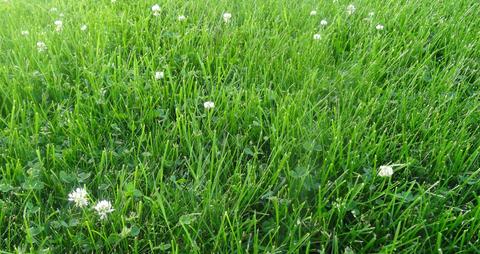Welcome to the latest issue of the Home Lawn Care Newsletter from UMN Turfgrass Science! We will provide monthly updates to address all your lawn care tasks at the times when you need to know.
June 21, 2022: Issue 2
Lawns: moving into summer conditions
Weed control
As it gets warmer and drier, herbicides that control broadleaf (non-grass) weeds can cause more damage to turf. Weeds must be actively growing, so don’t treat if the weed is dormant.Identify the weed and select the most effective weed control product for that weed. Find help both identifying the weed and finding an appropriate control here:
Is this plant a weed? from UMN Extension
If crabgrass is starting to emerge in your lawn, hand-pull or identify the stage of its growth to select an appropriate herbicide.
Just how big is your crabgrass from Turf Republic
Control options for crabgrass from UMN Extension
Summer stress prevention
Mowing
- Raising the height at which you mow your lawn will reduce weeds and reduce watering requirements of the turf.
- Mow less frequently to a height of at least 3 1/2 inches.
Watering
- Watering less often enables deeper roots to form. Consider watering an inch every 10-14 days as a regular practice. When your lawn starts to go dormant, you can discontinue watering for up to 60 days without the lawn dying. If you have fine fescues, that type of lawn may need a periodic light watering of 1/2 inch or so every few weeks to keep the crowns alive.
Water-saving strategies for home lawns from UMN Extension
- If you have an irrigation system in your lawn, you should take some time and make sure it is working correctly.
Auditing Home Lawn Irrigation from UMN Extension
Trending topics
Creeping Charlie
Last month's interest in No Mow May has caused many people to wonder whether creeping Charlie is beneficial to pollinators. Read more about the topic here:
Creeping Charlie: Management and Value to Pollinators
Ask Extension: Can I get rid of creeping Charlie without using chemicals? from UMN Extension
Events
The UMN Turfgrass Science team will be at:
- Coon Rapids Summer Neighbor Meetings on Tuesday, June 28, 2022 from 6:30-8:00pm at Rockslide Park and Tuesday, July 12 from 6:30-8:00pm at Crooked Lake Park.
- Longfellow Garden Club on Saturday, July 16, 2022 from 9:30-11:30am in the Longfellow neighborhood of Minneapolis.
We will be at these events to answer questions on smart irrigation and lawn care as part of our collaboration with the Metropolitan Council.
Research Highlights
The UMN Turfgrass Science research program has been investigating the effect of shade on turfgrass growth. In this month’s research focus, read about work from former team member Dominic Petrella.
Out of the shadows: Using data to breed better turfgrasses for shade
